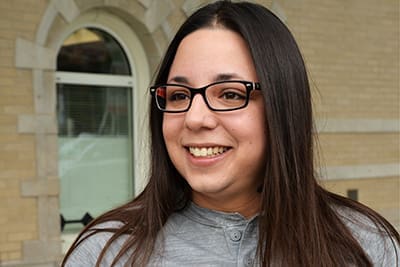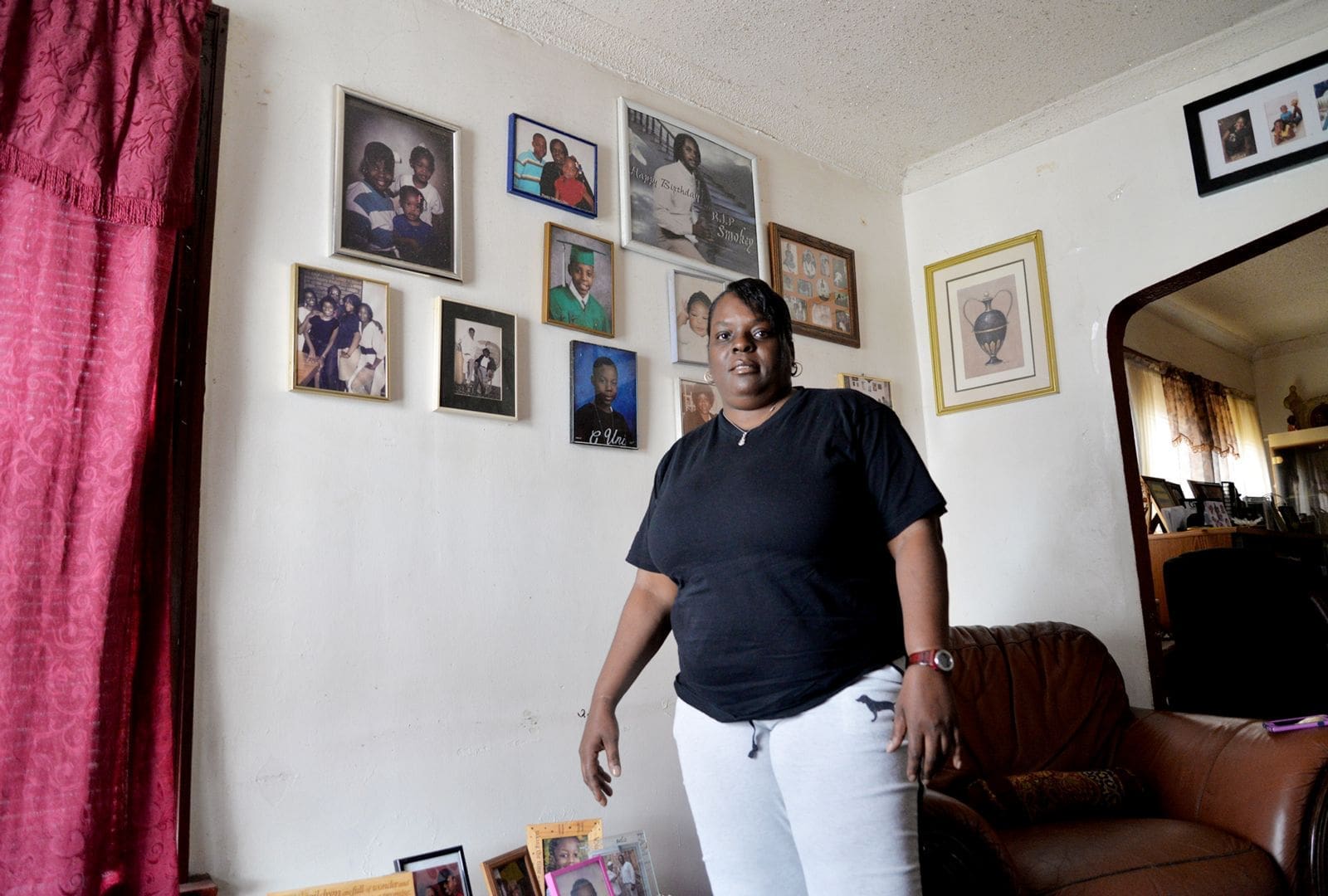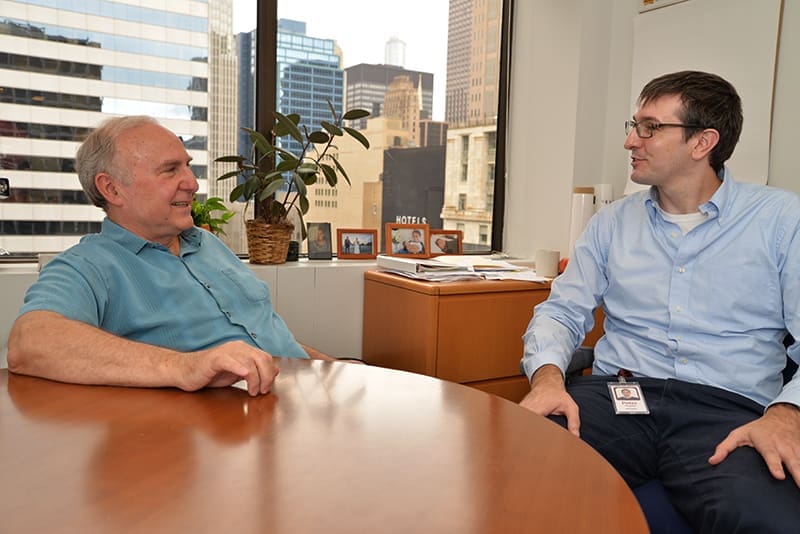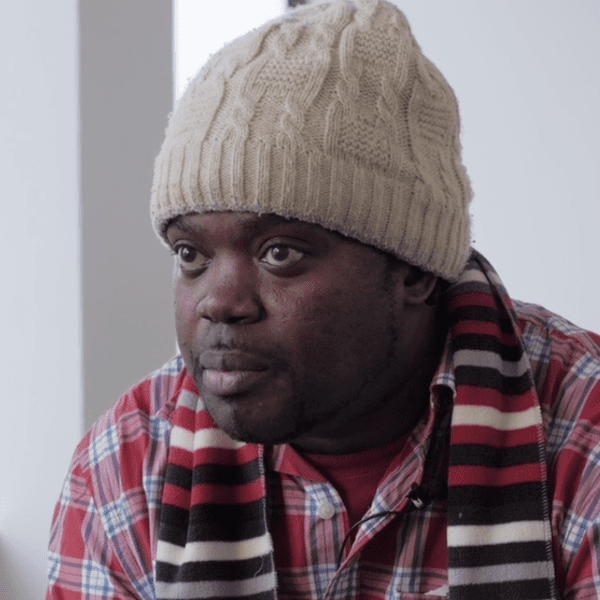By Jennifer Moreno, CADC
To honor National Recovery Month, we asked AFC’s Certified Alcohol and Other Drug Abuse Counselor (CADC) to reflect on the difficult road to recovery. Since July 2015, Moreno has conducted health assessments for 42 of AFC’s housing clients who are regular or recovering users of drugs and alcohol, and she has developed treatment plans with 23 clients.
The public’s understanding of substance use is better than it once was, but there is still a long way to go. Working in the field, one of the things that I hear often is why can’t people just stop using drugs? Why would you continue to use if you lose your children, get arrested, become a victim of violence or any of the other atrocities that can come with substance use?
The answer is this: recovery is a process.
Substance use is but a symptom of a deeper problem. In order to change, one must go through the process of forgiving themselves, healing childhood trauma and taking ownership of one’s life. This process can take years to work through.
I’m here to help our clients work through those traumas. As a counselor, you get to hear stories. The counseling relationship can be an intimate journey. When rapport is strong, you get to walk alongside your client and hear about their life. You get to bear witness to healing from the grief that comes from broken dreams and old wounds. Sometimes, you even get to see a new person emerge. You get to see children coming back home, healing, forgiveness and lives restored. These times of metamorphosis are why I continue doing this work.
* * * * *
 Metamorphosis. I love that word! By definition, it refers to the process of transformation.
Metamorphosis. I love that word! By definition, it refers to the process of transformation.
Some time ago, I was working with a woman who presented with several dependencies. One of our early encounters was her yelling various colorful words at me because she had been up for a few days and was not in the best mood. Over the course of several years, she able to talk, layer by layer, about one of the most profound abuse stories I had ever heard up until that point. She did not stop using right away. Remember, the substance is a comfort until you learn new coping skills, but eventually she healed.
Fast-forward a few years, and the woman who had so colorfully yelled at me was but a distant memory to the woman, the employee, the wife and mother who now stood before me. She had a transformation process- a metamorphosis. It is moments like these that remind me that no matter how difficult the case, this be may THE time of transformation for the client. It reminds me to continue trying to chip away and process with the client all of the things that have held them down. What a profound experience!
* * * * *
I often get asked the questions, “Why do you do this work?” “What is your personal stake in this work?” “Are you in recovery?” I don’t normally go into detail about my journey, because sharing my stories will turn the focus on me.
 But yes — I do have a personal stake in this work. Substance use and tragedy were pretty normal themes for me growing up. My birthparents were both dependent on heroin, among other things, both were living with HIV, and both had tragic ends to their lives when I was a teenager. I really cannot sugar-coat it; it was a terrible time in my life. There were several periods of constant and consistent tragedies. We lost a relative to AIDS-related complications as other relatives were learning that they too were living with the virus. My birthmother was a victim of homicide, and my birthfather very likely was, too.
But yes — I do have a personal stake in this work. Substance use and tragedy were pretty normal themes for me growing up. My birthparents were both dependent on heroin, among other things, both were living with HIV, and both had tragic ends to their lives when I was a teenager. I really cannot sugar-coat it; it was a terrible time in my life. There were several periods of constant and consistent tragedies. We lost a relative to AIDS-related complications as other relatives were learning that they too were living with the virus. My birthmother was a victim of homicide, and my birthfather very likely was, too.
Meanwhile, I was experiencing my own traumas: I was homeless by the time I was 16 years old, living at the Neon Lighthouse for a little while. This has been my own journey — my own metamorphosis.
Fast forward to today: I have been honored to have worked in this field for close to a decade. I have been fortunate to hear so many stories, and witness so much change. I have had the privilege of sitting at bedsides and hospices to share empathy and hope. From where I came from, there really is no greater reward.
I work diligently because I have personally and professionally seen how substance use and recovery is a life-or-death battle. I believe that if we all work together to offer understanding and empathy, do our best to advocate and listen, then we will truly have done this work. Whether it is planting the seed of recovery, working with someone through their past or being therapeutically present with someone in their final days, it is all an important part of the fight.



